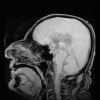Just a question that crossed my mind.
Since you're using L-tyrosine daily (Spark), arent you worried about seratonin depletion?
Administration of 5-HTP alone is contraindicated for
depression and any process involving a catecholaminecomponent due to its ability to facilitate depletion of theseneurotransmitters. 5-HTP should be administered carefully inpatients because depletion of dopamine and norepinephrinemay exacerbate existing disease processes or precipitateonset of catecholamine-related problems.Administering serotonin or dopamine amino acidprecursors should never involve administration of only oneamino acid. Improperly balanced amino acid precursors areassociated with decreased efficacy, increased side effects,and depletion of the nondominant system.
Source: http://neurosupport....indications.pdf
I just tried some 5htp last night and I found that it cured my depression from Ltheanine use. This made me research a lot about daily use and found the above paper and also heart valve issues assoc with 5htp.
Doesnt this mean that supplementing one AA will downregulate the other system?
Arent you concerned about the daily L-tyrosine use downregulating your seratonin system? And wont the EGCG downregulate it further?
I've been using L-tyrosine daily for sometime and this worries me a lot, that I should consider seratonin augmentation too. And increasing seratonin usually makes me apathetic, though it cures my depression.
Is there anyway in which we can supplement both systems without downregulation of any?
Its cool if you're busy with ERAS and cant reply soon.
Edited by FocusPocus, 14 September 2014 - 04:10 AM.

















































